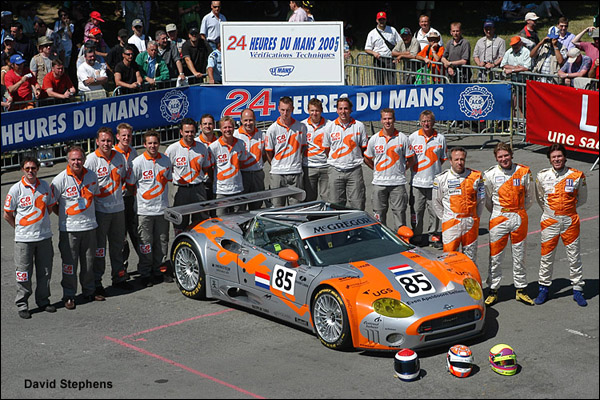Historic Dutch marque Spyker, most recently known for their roadgoing supercars and for their brief involvement in F1 in 2007, which followed on from a multi-year adventure in GT2, is set to see the production of three road cars restart after confirmation of a new partnership and funding package was confirmed today.
The new investor group is led by Michail Pessis (co-owner of SMP Racing Monaco as well as the owner of Milan Morady SA in Luxembourg and R-Company GmbH in Germany) and Boris Rotenberg (owner of SMP Racing and BR Engineering) and has reached an agreement with Spyker Ltd to revive the brand after the last custodians declared the company bankrupt in 2014.
Those plans clearly involve some form of motorsport programme, yet to be announced. the statement today confirming that “Spyker has the opportunity to re-enter the racing arena and aims to take a strong foothold in the motor sport world”.
There is no indication whether that would be with a GT race version of the road cars, or indeed a return to sports prototype racing, though the timing of the deal is interesting bearing in mind the rules cycle for LMH and LMDh. BR Engineering worked closely with Dallara on the design of their BR1 LMP1 car (above) that contested the FIA WEC in 2018/19.
Plans have been announced for the intended production of three Spyker models; the Spyker C8 Preliator (above), the Spyker D8 Peking-to-Paris SSUV and the Spyker B6 Venator, starting from 2022 by a new Spyker production company, to be incorporated in collaboration with Victor R. Muller, Chief Executive Officer of Spyker Ltd.
The investor group has already produced a number of alloy-bodied Spykers in so-called BR configuration in their own facilities. In the future, there will be international cooperation for carbon bodies (in house production in Russia), engineering (Germany, Russia) and the new manufacturing facility in the Netherlands with the (former) Spyker team. The final assembly will take place in the Netherlands. Spyker’s financial, accounting and controlling department will be operated from Luxemburg.
265 modern roadgoing Spykers have been built to date and after-sales and servicing for them will be an integral part of the new Dutch production facilities. New service centres will be opened on the Cote d’Azur and at a location close to the Belgian, French and Luxemburg borders.



